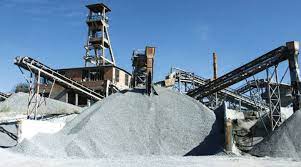FDI-based cement factories also seek finance from domestic banks

By A Staff Reporter, Kathmandu, May 23: A study of the Nepal Rastra Bank (NRB) published this week has found that the Foreign Direct Investment (FDI)-based cement industries have raised significant amount of debt from the local banks in Nepal.
The report titled 'Foreign direct investment in cement industry in Nepal: A study on socio-economic impact', suggested allowing FDI in cement industries only on condition that local investors also hold certain minimum per cent of equity.
"FDI helps in bringing new technology into the country and promotes the competition forcing domestic industries to be more efficient. This would help in the transfer of both technical and managerial know-how from foreign investors to local stakeholders," read the report.
The FDI in cement industries stands at Rs. 56.97 billion, while the total capital of domestic cement industries amounts to Rs. 122.33 billion as of 2018/19, according to the Department of Industry.
At present, 55 cement industries are operational in Nepal of which three are FDI-based, two government-owned, and 50 locally and privately owned. Two FDI-based industries are under construction.
Hongshi-Shivam Cement has 70 per cent FDI, Arghakhanchi Cement has 18 per cent and Maruti Cement has 21 per cent FDI while under-construction Tianyi Cement Industries and Huaxin-Narayani Cement has 70 per cent and 100 per cent FDI respectively.
According to the report, the operation of large FDI-based cement manufacturers like Hongshi-Shivam Cement Industry (with the daily production capacity of 6000 metric tons) which is also supplying clinker to several other cement industries has been helping significantly in narrowing the gap between the domestic demand and the production of cement in the country.
The FDI in cement industries in Nepal stands at Rs. 56.97 billion, while the total capital investment in cement industries is Rs. 122.33 billion as of 2018/19.
Average daily production capacity of three FDI-based industries is 2783 tonnes while that of the government-owned and 50 locally and privately owned industries is 820 tonnes and 622 tonnes respectively.
Likewise, FDI-based cement industries are found to be more efficient and profitable than government-owned or locally-owned cement industries. In order to produce one ton of cement, while the FDI-based cement industries use 0.99 metric tons of limestone on average, the government-owned cement industries use 1.45 metric tons.
Similarly, the production cost to the sales ratio of the FDI-based cement industry is about 46.63 per cent compared to 48.95 per cent and 82.18 per cent of locally owned and government-owned cement industries.
The economies of scale owing to larger size and the superior technology of the FDI-based cement industries are the reasons behind their higher efficiency, concluded the study. FDI-based industries are paying better to their employees as well.
Most of the employees, especially working in FDI-based cement industries, receive benefits like bonus, provident fund and insurance besides salary.
The majority of the workers work for eight hours and earn more than Rs. 40,000 per month in government-owned and FDI-based cement factories. The study finds that the annual actual production is around half (7.49 million metric tons) of the annual installed capacity (15 million metric tons) of the existing cement industries in operation with 9.05 million metric tons of domestic consumption demand in 2018/19.
"Around 1.56 million metric tons of cement was imported from India in that year. The mega projects in Nepal often import cement from India due to issues of certification, quality consistency and ability for bulk supply related to domestic cement suppliers," read the report.
Recent News

Do not make expressions casting dout on election: EC
14 Apr, 2022
CM Bhatta says may New Year 2079 BS inspire positive thinking
14 Apr, 2022
Three new cases, 44 recoveries in 24 hours
14 Apr, 2022
689 climbers of 84 teams so far acquire permits for climbing various peaks this spring season
14 Apr, 2022
How the rising cost of living crisis is impacting Nepal
14 Apr, 2022
US military confirms an interstellar meteor collided with Earth
14 Apr, 2022
Valneva Covid vaccine approved for use in UK
14 Apr, 2022
Chair Prachanda highlights need of unity among Maoist, Communist forces
14 Apr, 2022
Ranbir Kapoor and Alia Bhatt: Bollywood toasts star couple on wedding
14 Apr, 2022
President Bhandari confers decorations (Photo Feature)
14 Apr, 2022










